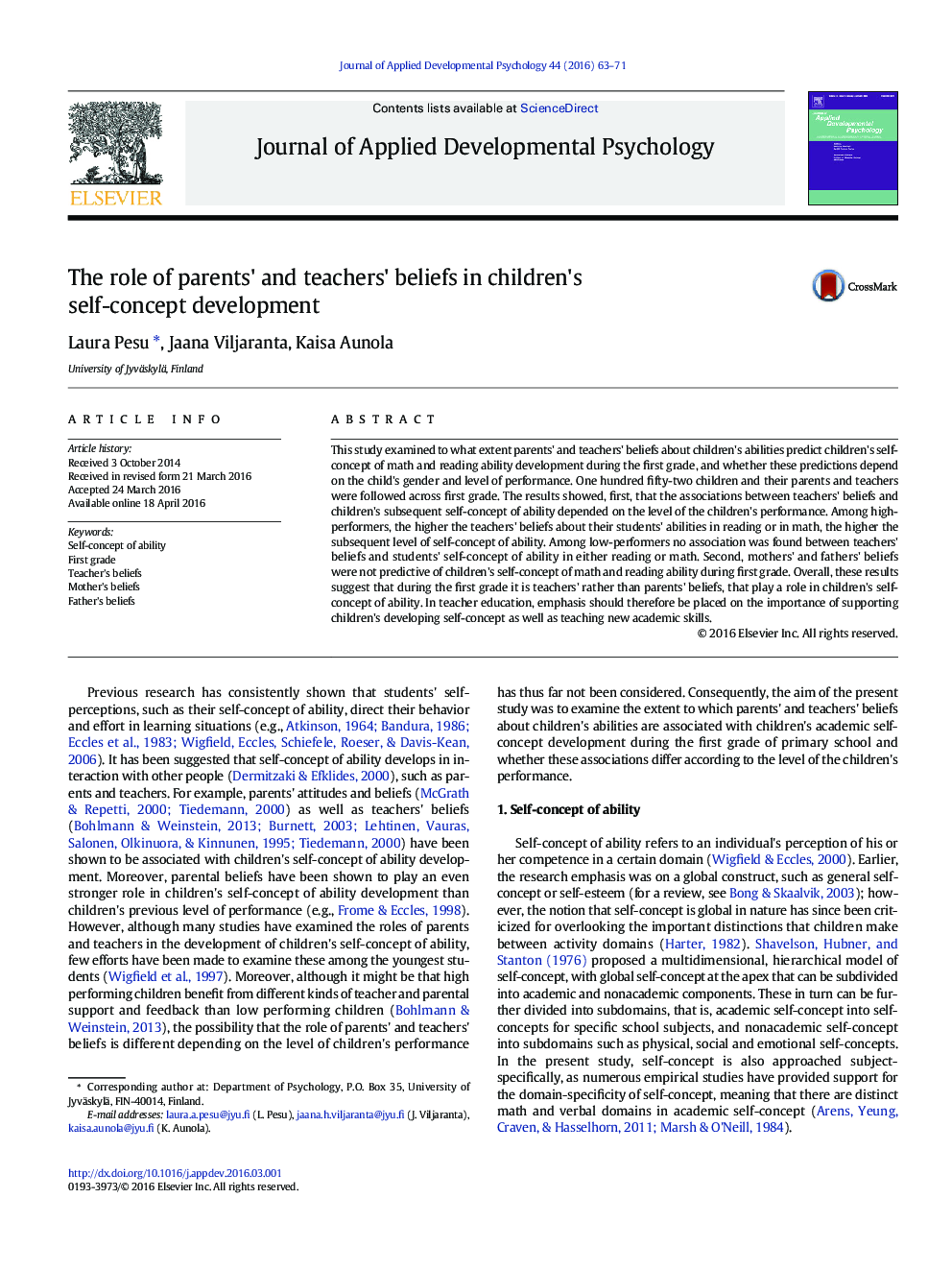| کد مقاله | کد نشریه | سال انتشار | مقاله انگلیسی | نسخه تمام متن |
|---|---|---|---|---|
| 359620 | 620259 | 2016 | 9 صفحه PDF | دانلود رایگان |
• Teachers' child-specific ability beliefs predicted children's self-concept.
• The relations varied according to children's performance.
• Parental beliefs did not predict children's self-concept.
This study examined to what extent parents' and teachers' beliefs about children's abilities predict children's self-concept of math and reading ability development during the first grade, and whether these predictions depend on the child's gender and level of performance. One hundred fifty-two children and their parents and teachers were followed across first grade. The results showed, first, that the associations between teachers' beliefs and children's subsequent self-concept of ability depended on the level of the children's performance. Among high-performers, the higher the teachers' beliefs about their students' abilities in reading or in math, the higher the subsequent level of self-concept of ability. Among low-performers no association was found between teachers' beliefs and students' self-concept of ability in either reading or math. Second, mothers' and fathers' beliefs were not predictive of children's self-concept of math and reading ability during first grade. Overall, these results suggest that during the first grade it is teachers' rather than parents' beliefs, that play a role in children's self-concept of ability. In teacher education, emphasis should therefore be placed on the importance of supporting children's developing self-concept as well as teaching new academic skills.
Journal: Journal of Applied Developmental Psychology - Volume 44, May–June 2016, Pages 63–71
